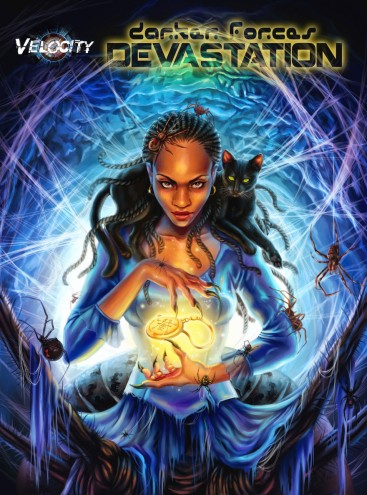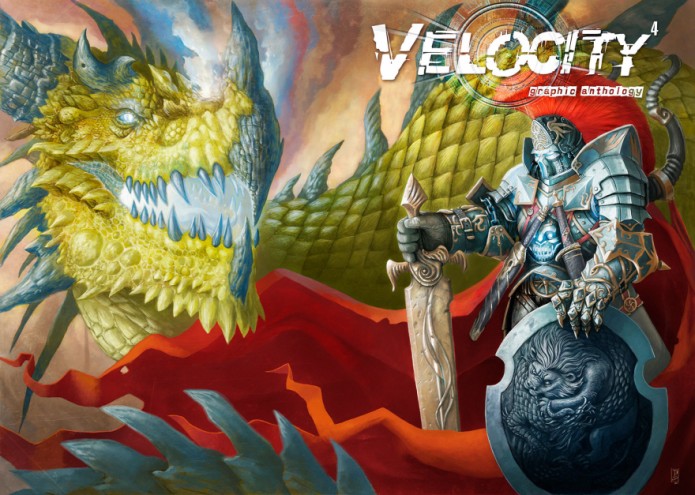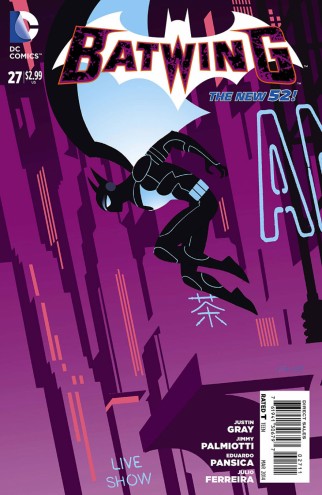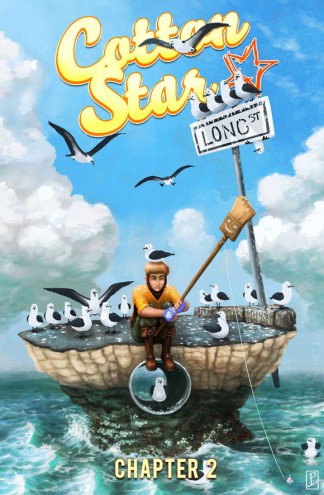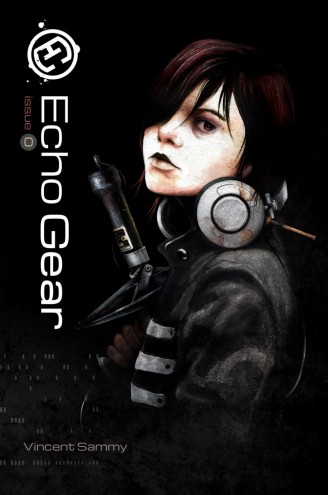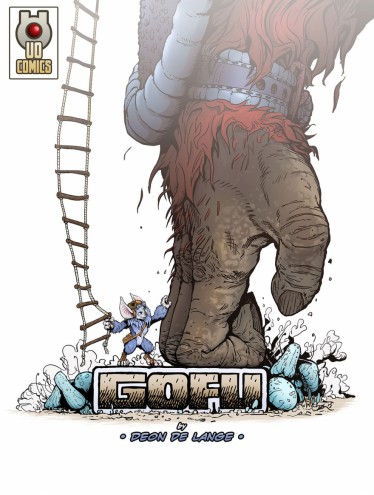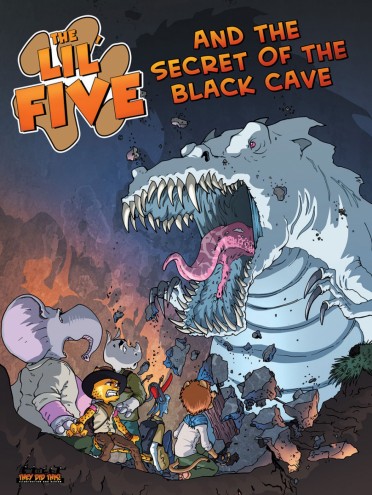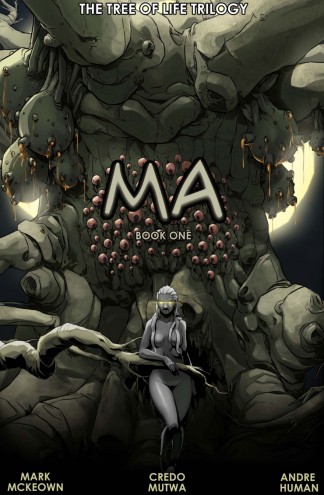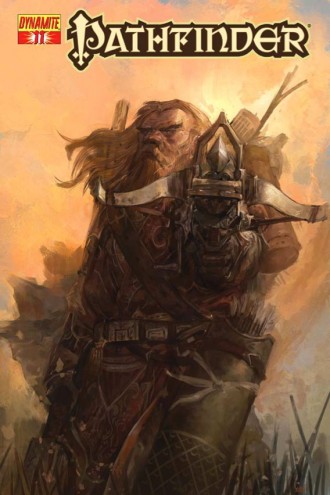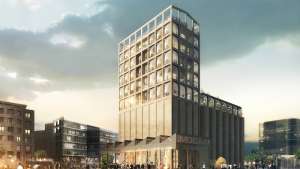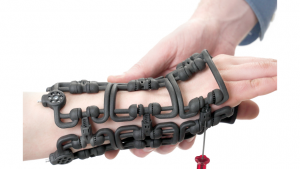From the Series
Moray Rhoda is a Cape Town-based designer and illustrator. He has been involved with the local comics scene since 2000, when he founded Igubu Comics Collective. He is currently self-publishing a South Africa/Australia collaborative graphic novel anthology, Velocity, and is also the Open Book Comics Fest Coordinator.
Rhoda tells designindaba.com what's happening on the SA comic book scene:
Ten years ago I wrote an article for Design Indaba where I expressed some opinions that were based on my experience of SA comics at the time.
A lot of the statements have become irrelevant over time, while some other parts of the article still hold true today. This article will hopefully bring into focus the current state of the art of SA comic books and the many fantastic changes it’s undergone, as well as the disappointing entrenched issues with creating a viable SA comic book industry.
The first statement I’d like to challenge is:
No country proves that comics are an extension and expression of a nation's psyche more than South Africa. Historically, local comics have never been able to move out of the shadow of national events and the cultural stresses that form our country. Politics, sport and societal concerns dominate our society and this is reflected in the comics South Africans create and identify with.
The passage of time has made that probably the most incorrect statement in the entire article, but it is also the clearest indication of how far we’ve come.
Time has proven that a new generation of artists and writers in SA are far more interested in expressing themselves using universal (rather than local) themes which has led to a revolutionary approach to how SA comics are created.
Politics and sport are now taking a backseat to tales of fantasy and science fiction, noir fiction, humour comics and generalised fiction tales that are stories told for pure entertainment and not as social commentary vehicles.
However, while the comic creators have evolved, the average South African has not. They remain blissfully unaware that comic books can be anything more than kids' entertainment or intellectual cartoons; and that local creators are independently producing and publishing work that compares favourably with international comics. Some of the local comic books are listed below and a quick glance at what’s on offer will give a good idea of what’s available and also the quality of local work…
SA comic creators are mostly focusing on good storytelling and realising that comics are the medium, not the genre, and that within it any tale can be told, thereby creating stories with universal appeal that are less obsessed with pushing any kind of stereotypical "South African Identity". Ironically, while grafting a strong SA identity to comics was an interesting selling point in the past, it has become irrelevant and somewhat of a barrier to connecting with broader audiences whose worldview is certainly less politicised than a decade ago.
So what has changed in 10 years? South Africa still lacks efficient comic distribution, proper publishers and there is very little support from the local audience.
Add on the ever-pervasive public opinion that "comics are just for kids" and "if it’s local, it’s sh*t" and it becomes clear that the same obstacles to creating a flourishing local industry are all still in place, and yet this no longer appears to be as huge a deterrent to SA comic creators as in the past.
The reasons for the sudden rise of the independent SA comic book are simple but numerous. Technology now allows anyone to self-publish books digitally at a fraction of the cost of a traditional litho print run. This in turn means that the self-publisher has a more realistic task of distributing, marketing and selling a few hundred books, instead of trying to sell a thousand books or more. Other self-publishers have gone completely digital, offering their books for sale online at a much lower cost through portals such as Comixology, Graphicly and other similar sites.
More local events such as Free Comic Book Day, Upcon, rAge, and Open Book Comics Fest now exist, giving local comic creators more avenues to distribute and market their product to a small but loyal local audience.
The biggest influencer to the boom in local comics, though, has to be that local creators are more globally aware of the audiences and technologies available and are no longer tying their hopes to a purely local SA market. This willingness to play in the international arena has almost certainly led to local independent comic creators improving the level of their storytelling and art in order to compete with the much higher standards globally.
In the intervening decade, a small but critical mind-shift from "build a local audience" to "build a good comic book and let the audience decide where they’re from" has happened, which has ultimately led to generally better quality books.
Lastly, one cannot underestimate the influence of the global love story Hollywood is having with pop culture. Where in the past comics and cosplay, gaming and collectibles, technology, fantasy, sci-fi and supernatural themes were restricted to a very small niche market, it now seems that the geek shall inherit the earth.
The globalisation of comics is also finally leading to South African comic creators making inroads internationally, while being (mostly) completely unknown in their own country.
One of SA’s biggest success stories is Joe Daly, the Western Cape artist of a slew of books including The Red Monkey, Scrublands and, most recently, the Dungeon Quest trilogy, published in the USA by Fantagraphics and in Europe by L’Association. It was nominated for Ignatz and Eisner awards and won the coveted Angoulême Jury Prize.
Other notable SA comic creators include Karl Stephan, the author of Sparko, published by SLG; Sean Izaakse, artist on Pathfinder for Dynamite Entertainment; and Jason Masters, who is listed with DC comics and has worked on a number of the Batman Family books, including Batwing. Even well-known SA writer Lauren Beukes has dabbled in comics, most recently contributing a story to DC/Vertigo’s Witching Hour anthology, along with Cape Town artist Gerhard Human.
There certainly is a burgeoning interest in SA comic books – to the extent that the Velocity Anthology hosted the first-ever panel talk on SA & Australian comics at San Diego Comic Con 2013.
Ten years ago it seemed that the only way a local industry could be created or have any kind of international impact would be through a collective vision and through pooling the resources of SA artists. That a guild of cartoonists and comic book creators would need to come into existence to have the necessary clout to get the attention of local printers, publishers, distributors and readers.
Fantastically, it turns out that the sum of the parts adds up to a much more glorious whole, and that instead of waiting for rescue, our local independent comic creators are saving the day for themselves.
A list of local comics:
Velocity Graphic Novel Anthology
Read a 100-page free preview of Velocity here.
Moray Rhoda will be speaking at the Design Indaba Expo on 28 February 2014 at 11:00.

